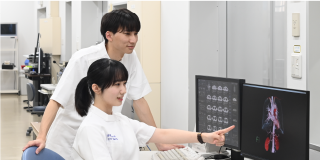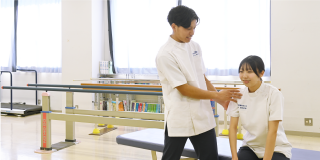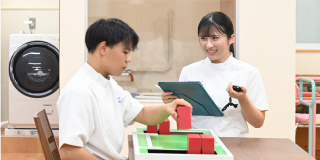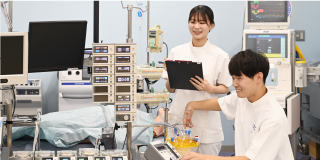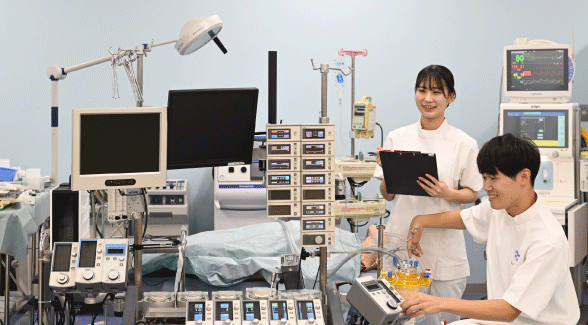
What Does a Clinical Engineer Do?
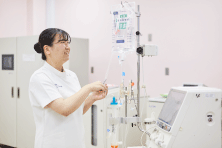
As medical technology advances, medical equipment grows increasingly sophisticated and complex. Clinical engineers are medical experts who operate and manage medical devices that lives depend on, such as dialysis machines and heart-lung machines.

Real-World Needs
Japan’s national qualification system for clinical engineers is relatively new, first enacted in 1987. However, the role of clinical engineers—ensuring the safety and maintaining the effectiveness of medical equipment that is essential to modern medicine—is growing as a part of Team Medical Care. For example, during surgery, clinical engineers ensure that equipment operates safely and reliably, and are responsible for detecting irregularities. When doctors ask about medical equipment, clinical engineers assist them as partners with expert knowledge and communication skills.
Clinical engineers are also a presence that patients can trust in and depend on. For example, for patients undergoing dialysis, which takes three to four hours three times a week, the strong trust and peace of mind provided by a clinical engineer are extremely valuable. Just the gentle manner and listening ear of these professionals can help to soothe a patient’s stress. As clinical engineers often have regular contact with dialysis and other patients, in addition to operating the machinery, being highly responsive to any changes in a patient’s condition is also important.
Of course, clinical engineers have other duties as well, including the crucial role of knowing and managing all the medical equipment in their hospital or facility to ensure that it can be used safely, reliably and efficiently throughout the establishment. They also provide advice on the adoption of new equipment. Currently, there are approximately 20,000* clinical engineers working in Japan, far too few to meet demand. For this reason, the need for and expectations toward young clinical engineers are growing.
*Data as of 2016, as reported in the Ministry of Health, Labour and Welfare’s “Hospital Report 2016”
About the Department of Clinical Engineering
The Department of Clinical Engineering at the Nihon Institute of Medical Science was established in April 2012. Students at the department learn about clinical medicine, building a base of fundamental medical knowledge, then expand their engineering skills and knowledge to acquire expertise in medical devices. Special emphasis is placed on the provision of proper, safe treatment in an actual clinical setting. A four-year university education means that students can develop themselves as adults and medical professionals, hone their communication skills, and consider how to best work with a medical team as a clinical engineer.
Medical devices will continue to play an extremely important role in medicine. At the Nihon Institute of Medical Science’s Department of Clinical Engineering, we make it our goal to not merely prepare students to obtain national certification, but also to be leaders in clinical engineering.







